I am using AngularJS and trying to work with Google's reCAPTCHA, I am using the "Explicitly render the reCAPTCHA widget" method for displaying the reCAPTCHA on my web page,
HTML code -
<script type="text/javascript">
var onloadCallback = function()
{
grecaptcha.render('loginCapcha', {
'sitekey' : 'someSiteKey',
'callback' : verifyCallback,
'theme':'dark'
});
};
var auth='';
var verifyCallback = function(response)
{
//storing the Google response in a Global js variable auth, to be used in the controller
auth = response;
var scope = angular.element(document.getElementById('loginCapcha')).scope();
scope.auth();
};
</script>
<div id="loginCapcha"></div>
<script src="https://www.google.com/recaptcha/api.js?onload=onloadCallback&render=explicit" async defer></script>
So far, I am able to achieve the needed functionality of whether the user is a Human or a Bot,
As per my code above, I have a Callback function called 'verifyCallback' in my code,
which is storing the response created by Google, in a global variable called 'auth'.
Now, the final part of reCAPCHA is calling the Google API,
with "https://www.google.com/recaptcha/api/siteverify" as the URL and using a POST method,
And passing it the Secret Key and the Response created by Google, which I've done in the code below.
My Controller -
_myApp.controller('loginController',['$rootScope','$scope','$http',
function($rootScope,$scope,$http){
var verified = '';
$scope.auth = function()
{
//Secret key provided by Google
secret = "someSecretKey";
/*calling the Google API, passing it the Secretkey and Response,
to the specified URL, using POST method*/
var verificationReq = {
method: 'POST',
url: 'https://www.google.com/recaptcha/api/siteverify',
headers: {
'Access-Control-Allow-Origin':'*'
},
params:{
secret: secret,
response: auth
}
}
$http(verificationReq).then(function(response)
{
if(response.data.success==true)
{
console.log("Not a Bot");
verified = true;
}
else
{
console.log("Bot or some problem");
}
}, function() {
// do on response failure
});
}
So, the Problem I am actually facing is that I am unable to hit the Google's URL,
Following is the screenshot of the request I am sending and the error.
As far as I understand it is related to CORS and Preflight request.
So what am I doing wrong? How do I fix this problem?

